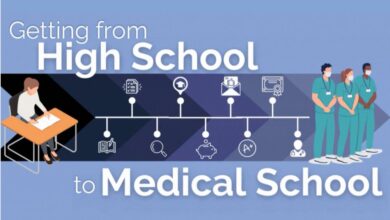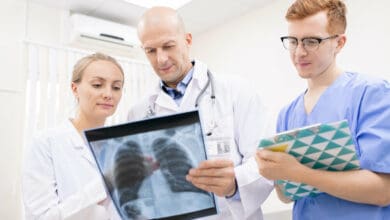By Evan Laveman
When you’re a premed student you don’t know enough to contribute medically, yet there are plenty of things you can do to make a contribution to medicine. For instance, I hear many doctors say that they see undergraduate medical mission trips as an activity that benefits the traveler more than it actually benefits the region. With so many premedical experiences dedicated to your own growth and development, the question becomes- what are some ways that you can be a service minded premed student and make a tangible impact on patients’ lives now?
- Give Blood
Unless you meet exclusion criteria for donating blood, this is one of the easiest ways that you can make an impact, and it requires hardly any effort on your part. According to the Red Cross, 38% of the U.S population is eligible to donate, but less than 10% actually do each year. Additionally, one pint of blood can save up to three lives. Universities usually have a blood and platelet center, or are affiliated with one nearby. 41,000 blood donations are needed each day, so if you help to keep the blood supply strong, you’re making a valuable contribution to medicine.
- Sign up for a bone marrow registry
Again, this is something that you can do so easily and it could one day actually save an individuals life. Giving blood and being on the bone marrow registry are things that I would recommend everyone do to make a difference, but especially if you’re going into medicine. When you join, your tissue type is added to the registry and you don’t actually make a donation until there is a patient match. Here are some facts and myths about the bone marrow registry, and ways that you can you look into signing up or hosting a drive.
- Get certified in CPR
This can usually be done in one day and classes are generally easy to find. Having knowledge about prehospital care and how to activate emergency services when necessary can make all the difference in a bad situation. I’ve had several opportunities as a premed where those skills came into use. The most recent one was when I was walking back from the supermarket and saw an elderly and confused woman leaning against some steps on the sidewalk with her frightened family members asking her rapid-fire question. Although I couldn’t be sure exactly what was wrong, I was able to help them call an ambulance, attempt to locate an AED, calm her and her family down, and track her vitals until EMS arrived.To take this a step further, look into becoming a CPR instructor so that you can not only be of use yourself, but help educate others as well.
- Become an EMT
I think becoming an EMT is an incredible litmus test for students who are considering going into medicine as a career. It will open your eyes to the way that prehospital care works, and also give you a lot of the basic clinical skills that you will be relying on for the rest of your professional career. It’s also one of the few ways that you can intimately involve yourself in patient care before you actually go to medical school. Most community colleges or extension programs offer EMT courses every semester.
- Work at the homeless clinic/mobile clinic
If your school has a clinic associated with it that utilizes undergraduates, you should join it. A lot of these clinics are understaffed, so you may be serving a dual purpose in helping the community as well as yourself. A resident may serve as the attending figure there, a medical student may be a primary care source for the client, and this elevates the undergraduate to a pretty important level in the system. In the mobile clinic at UCLA, undergraduates are relied on to educate the clients on available services that may be relevant to them, as well as hand out hygiene kits, socks, blankets, and resource information. They also maintain the truck and the medications that are used for the clinic. Overall they are a very important part of the client care, and in the process they are able to learn from their interaction with patients, medical students, and physicians.
There are so many other ways that you can be of direct help as an undergraduate student; these are just a few that I thought would be applicable to the most people. To all the prospective doctors, keep up the good work, and remember how you can make a difference in people’s lives now.



